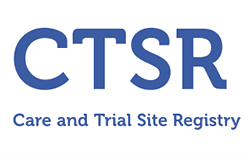Authors
Stojan Perić, Jelena Nikodinović Glumac, Ana Töpf, Dušanka Savić-Pavićević, Lauren Phillips, Katherine Johnson, Marcus Cassop-Thompson, Liwen Xu, Marta Bertoli, Monkol Lek, Daniel MacArthur, Miloš Brkušanin, Sanja Milenković, Vedrana Milić Rašić, Bojan Banko, Ružica Maksimović, Hanns Lochmüller, Vidosava Rakočević Stojanović and Volker Straub
Journal
European Journal of Human Genetics,
Publication date
March 2017
Abstract
Variants in the TTN gene have been associated with distal myopathies and other distinctive phenotypes involving skeletal and cardiac muscle. Through whole-exome sequencing we identified a novel stop-gain variant (c.107635C>T, p.(Gln35879Ter)) in the TTN gene, coding a part of the M-line of titin, in 14 patients with autosomal recessive distal myopathy and Serbian ancestry. All patients share a common 1 Mb core haplotype associated with c.107635C>T, suggesting a founder variant. In compound heterozygotes, nine other TTN variants were identified: four stop-gain, three frameshift, one missense and one splice donor variant. Patients homozygous for the common variant did not show significant clinical differences to the compound heterozygous patients. The clinical presentation of all patients was an adult onset distal myopathy with predominant lower limb involvement. In addition, most patients had normal to mildly elevated serum creatine kinase levels, myopathic electromyograms, normal cardiologic and respiratory tests and muscle pathology consistent with a dystrophic process. In this study, we describe a distinct phenotype for patients with distal myopathy associated with novel recessive TTN variants including a Serbian founder variant. Our results expand the phenotypic and genetic spectrum of titinopathies and will facilitate the diagnosis of this condition in patients of Serbian origin.
DOI link
10.1038/ejhg.2017.16



